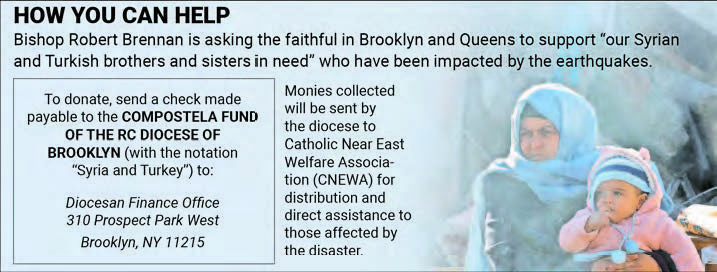
WASHINGTON — As the initial rescue work in Turkey and Syria shifts to recovery and cleanup following the Feb. 6 earthquakes that killed more than 47,000 people, many are criticizing the Turkish government not only for its unsafe buildings but also for its lack of a coordinated rescue response, which included a 12-hour shutdown of Twitter.
Two days after the earthquakes hit the region, while rescue workers and volunteers were searching through the rubble for survivors, the Turkish government blocked access to Twitter, according to the internet watchdog group NetBlocks.
This access remained shut off for at least 12 hours following growing criticism online of the government’s response to the earthquake.
On Feb. 8, the internet watchdog group posted data showing how access to Twitter was completely blocked on several internet service providers while other providers had limited Twitter access that also ended up getting shut down. The group said blocking the social media platform was “likely to impact community rescue efforts underway.”
Twitter access in Turkey was restored on Feb. 9.
In recent years, Twitter has been a major source of communication in natural disaster areas.
And in Turkey, a large number of people use the platform. According to data from the company, Turkey ranks seventh in the world for users and nearly one in four people over the age of 13 use Twitter. But they also know they have a fragile relationship with the social media platform.
A law passed last year in Turkey allows government officials to block Twitter or Facebook when it thinks it is necessary, saying the aim is to stop and criminalize the spread of misinformation.
This is also not the first time Recep Tayyip Erdoğan, Turkey’s president, has shut down Twitter. He temporarily banned it in 2014, and he restricted all social media two years later during an attempted military coup.
Right after that failed attempt, Turkey imprisoned 84 journalists.
The Committee to Protect Journalists, a nonprofit group based in New York that monitors and reports on press freedom violations around the world, reported in December that the country currently has 40 jailed journalists, making it the fourth worst country in the world for imprisoning journalists.
It described Turkey’s independent media as being “decimated by government shutdowns, takeovers, and the forcing of scores of journalists into exile or out of the profession.”
The report also noted that the arrests of journalists in 2022 could “signal a fresh assault on press freedom” ahead of the 2023 elections, especially with the new law mandating prison terms for those accused of spreading disinformation.
Amnesty International’s latest report on Turkey says “opposition politicians, journalists, human rights defenders, and others faced baseless investigations, prosecutions, and convictions.”
Another example of Erdogan’s crackdown on criticism involves former New York Knicks player Enes Kanter. After repeatedly criticizing Erdogan’s human rights abuses, Kanter’s Turkish passport was canceled and his family in Turkey was harassed. While playing in the NBA, Kanter could not play in games outside the U.S., as Turkey had put out an extradition order against him.
In January, Turkey put Kanter on its “Terrorist Wanted List” and offered $500,000 to anyone who could give information that would lead to bringing him back to Turkey to stand trial. Kanter became a U.S. citizen in 2021 and changed his name to Enes Kanter Freedom.
In examining the impact of shutting down Twitter amid Turkey’s earthquake recovery, a Time magazine report said initial tweets during this time are primarily used to coordinate rescue efforts, particularly as people trapped under the rubble call for help by sending tweets that others then retweet.
It also reported that volunteers in Turkey, and around the world, collected Twitter data after the earthquakes through location tagging and hashtags that enabled them to create a heat map showing where survivors’ calls for help were concentrated and was shared with rescue crews on the ground.
The decision by Turkish authorities to block Twitter “was not only an assault on internet freedom and free speech, but it also hindered efforts for people on the ground to access information and communicate with loved ones,” said Cathryn Grothe, a research analyst at Freedom House, a nonprofit group based in Washington that does research and advocacy work on political freedom and human rights.
In a Feb. 21 email to The Tablet, she said, “Social media and communications platforms are crucial in times of crisis; they allow people to seek aid and locate missing persons. This is a deeply concerning development given the deterioration of human rights online in Turkey.”
Grothe also pointed out that Turkish authorities cited the spread of disinformation about the earthquake as their rationale for blocking Twitter, but she noted that this decision “was made as social media users in Turkey expressed their frustration over the government’s handling of the earthquake.”
She also said the timing and context of the Twitter block were particularly significant because of the Turkish authorities’ “proclivity to equate criticism of the government with disinformation.”
Grothe acknowledged that disinformation can pose genuine risks to internet freedom but said, “blocking access to a vital communication platform is not the answer.”
Catholic aid organizations were not involved in the immediate rescue work of victims, so they were not as affected by the Twitter shutdown, but they have been a constant presence in the region since the earthquakes, providing food and clothing and bringing people to safe spaces.
Catholic Relief Services, the aid organization of the U.S. Catholic bishops, is supporting the work of the Caritas network, a Vatican-sponsored aid program, by distributing mattresses, blankets, hygiene kits, and food in impacted areas.
They recognize that the recovery work will take a long time.
As John Coughlin, emergency response team leader for Caritas Internationalis, told OSV News: “We’re going to be facing a really difficult situation and a really long-term response.”

